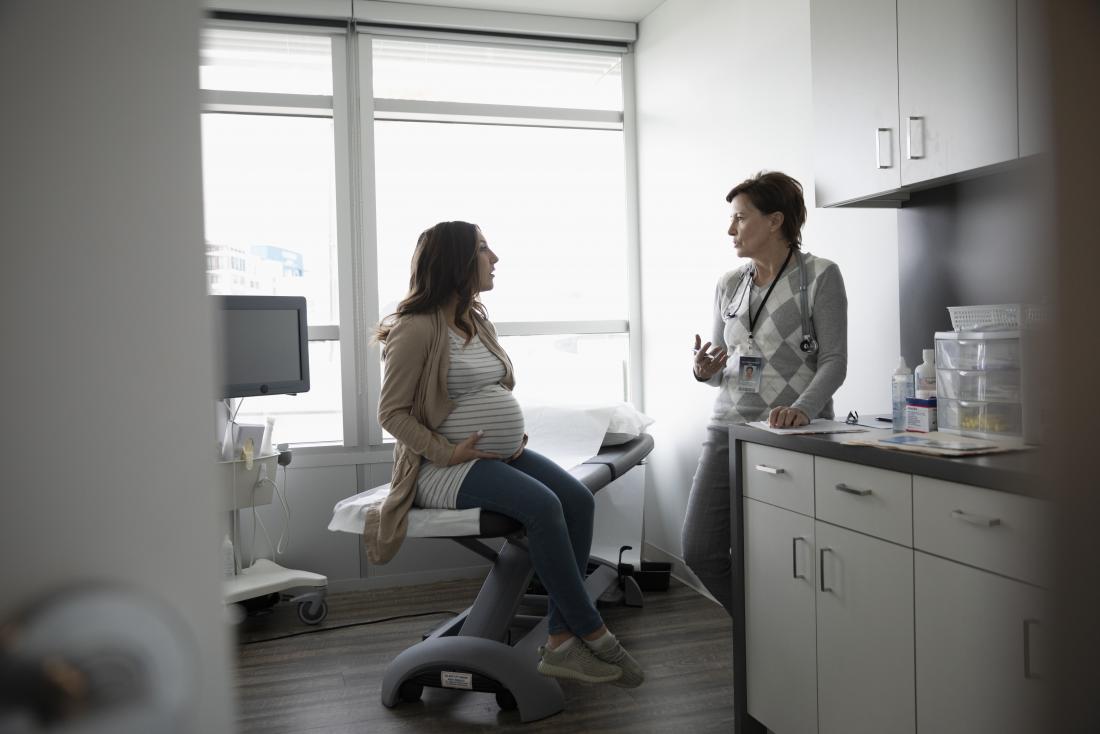Most doctors agree that masturbating during pregnancy is safe. It may also provide health benefits, such as lowering stress and promoting blood flow.
For some pregnant women, morning sickness, nausea, and fatigue remove any interest in sexual activity, including masturbation. Others notice an increase in their sex drive — libido — due to increases in progesterone and estrogen levels.
Women often wonder whether masturbating while pregnant is safe or if there are any risks. The good news is that, in most cases, it is totally safe.
In this article, we answer some common questions about masturbating while pregnant.

Masturbation is safe during low-risk pregnancies.
In most low-risk pregnancies, masturbation is a perfectly safe way to relieve stress and manage an elevated libido. That said, women should always defer to the advice of their doctors.
It is safe to use sex toys, such as vibrators or dildos, as long as they are clean.
Before using any toy in or around the genitals, wash it with soap water to prevent bacteria from entering the vagina. This applies to the hands as well. Keep the fingernails trimmed short to prevent scratches.
Masturbation will not harm the baby, and the baby will not understand what is happening. In fact, some doctors believe that babies may be soothed or comforted by the rhythmic uterine contractions that happen during an orgasm.
Masturbation, including during pregnancy, can be good for the body. Some women even report stronger or more intense orgasms while pregnant.
Some benefits of masturbation during pregnancy include:
- lowering stress levels
- improving sleep
- easing pregnancy-related discomfort and pain
- increasing the release of endorphins
In addition, masturbation is the safest form of sexual activity. There is no risk of sexually transmitted infections (STIs) unless a person is sharing a sex toy with someone else.
Later on in pregnancy, a woman may notice increased Braxton-Hicks contractions following an orgasm. These contractions, though sometimes uncomfortable, are nothing to worry about.
Some women also have cramps, similar to period cramping, after an orgasm. These cramps are normal and may feel like Braxton-Hicks contractions.
There are no risks associated with masturbation for a woman having a low-risk pregnancy who has no complications or other medical issues.
When preterm labor is a risk, however, vaginal penetration — or even having an orgasm — can trigger labor. In these cases, the doctor may recommend avoiding intercourse or orgasms to lower the chances of premature delivery.
Masturbation can cause small tears in the internal or external genitalia, especially if a woman has long nails. Breaks in the skin can introduce bacteria into the body and cause infection, which can be more serious when pregnant.
To reduce this risk, keep the nails short and make sure that the hands and any sex toys are clean. Placing cotton balls in the fingertips of a latex or nitrile glove and wearing it while masturbating can provide extra protection.
It is important to recognize the risk of contracting STIs from sharing sex toys. Covering a sex toy in a condom will minimize any risk of infection. Make sure to change the condom between each use of the toy.

A doctor can explain when sexual activity is not safe during pregnancy.
When women experience certain complications, doctors may recommend avoiding orgasms and sexual activity — including masturbation — during pregnancy. The restriction may be temporary or apply to the entire pregnancy.
Conditions and complications that may make some sexual activity risky include:
- placenta previa, in which the placenta covers the cervix
- a weakened cervix
- premature rupture of membranes
- a history of premature labor
- vaginal bleeding
- uterine infections
- intrauterine growth restrictions
It is extremely important to ask a doctor about specific risks. They may advise that a woman avoid having orgasms altogether or only refrain from vaginal penetration, for example.
Having an orgasm causes the muscles in the uterus to contract. In some situations, this can trigger early labor, premature delivery, or other serious complications.
If a doctor advises against vaginal penetration, masturbation or mutual masturbation with a partner can be a good alternative. If an orgasm is off-limits, avoid masturbation and all other sexual activity.
Couples yearning to connect may consider engaging in sensate focus exercises. The aim of these exercises is to build intimacy and increase physical awareness through mindful touching and enhanced communication.
If the water has broken or if there is any vaginal bleeding, refrain from masturbation and other sexual activity and consult a doctor.
For many women, masturbation is a healthful outlet for sexual energy during pregnancy. When pregnancy is healthy and low-risk, masturbation is perfectly safe and can have health benefits.
Doctors may advise women with certain medical conditions to abstain from some or all sexual activity. Anyone concerned about the risks should consult a doctor.
Q:
Are all types of sexual activity safe during pregnancy?
A:
Not all types of sexual activity are created equal, especially when you are expecting. If you are not feeling uncomfortable or having complications — like preterm labor or placenta problems — being sexual during pregnancy is OK.
The most important thing is for you to feel comfortable, listen to your body, explore various types of sexual activity, and if you desire partnered sexual activity, to communicate with your partner about your preferences.
